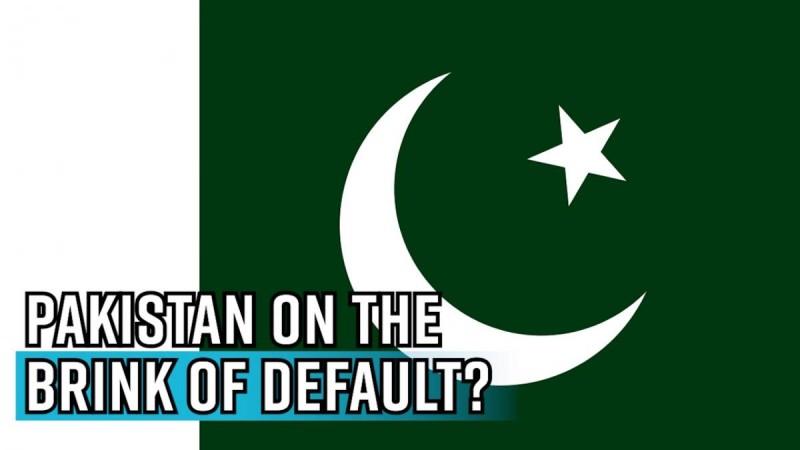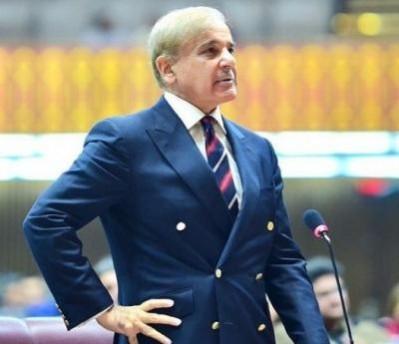The possibility of Pakistan defaulting on its debt is increasing. The foreign exchange reserves are hovering around USD 3 billion, barely sufficient for importing even essentials in the short run. Already international rating agencies including Fitch and Moody's have downgraded Pakistan to a level in which default is very likely.
Although there is no immediate signal that Pakistan would be able to avert default in 2023, many observers believe that its development partners and multilateral agencies might help it to ward off the default waiting to happen. If the situation does not improve, the state of Pakistan might collapse, especially due to social tension and closure of many of its industrial establishments aggravating the already grave unemployment situation.
The social tension is all-time high in Pakistan and increasing. Existential problems are already biting people while they are standing in cues for fuel, gas, milk, medicine etc., causing immense disappointment for not getting these things even after long waits. The shortages of fuel, medicines, food and electricity present a very pathetic scenario. Prices are witness to highest ever inflation ranging 30-50% in case of various commodities while PKR has tumbled to its lowest level in history. Factories are closing, production is being hindered even for major exportable like textiles. The crisis is intensifying. People are starving and shelterless in many places devastated by historic floods.

If Pakistan fails to reverse the deterioration in its economy, many experts and observers feel that Pakistan's manufacturing and to a certain extent services sector are fast moving towards a grinding halt. Even though informal sector economic activities continue for a while, they would not be helpful in resuscitating Pakistan's sagging tax revenue. The darkness is increasing and time is fleeting.
Even if the collapse of Pakistan state and establishment does not happen, the Army as usual may grab power from the political class to set things right as it has been done in the past several times. Some observers express the apprehension that "the President and Chief Martial Law Administrator Gen Asim Munir will call the shorts and use strong arm tactics to force people to fall in lime."
Another problem that could be caused by the protracted crisis is increasing, security challenges for Islamabad which might become extremely difficult to handle. Even if the Army and security agencies take charge, their capacity and capability to handle the security threat would be severely crippled. If the present level of unrest or recent terror attacks are any evidence, the Baloch would definitely sense an opportunity, as well the Pakistan Taliban.
The international powers having strategic interest in Pakistan would have an opportunity amid the economic crisis while Pakistan is struggling to manage funds, especially to cut the size of its military, eliminate the infrastructure of jihadist terrorism and bring Islamabad's nuclear programme under the control and supervision of the international community. Given the geopolitical flux, the international powers, as usual, may ignore Pakistan's misdemeanors, but it would have implications for peace in the region as well as well-being of the Pak people.
After about 10 days of inconclusive talks with Pakistan on the ninth review of the USD 6.5 billion bailout package, the IMF Chief Kristalina Georgieva in an interview with German state broadcaster Deutsche Welle on the sidelines of Munich Security Conference suggested Pakistan to take strong measures to avoid getting into a "dangerous place" amid looming fears of a default. "What we are asking for are steps Pakistan needs to take to be able to function as a country and not to get into a dangerous place where its debt needs to be restructured," she said.

Many other observers also opine that "restructuring is basically default by another name and its consequences are not much different than that of a default." The truth in Pakistan is that big businessmen who have political connections manage to get big loans and later compel banks to reschedule and even waive off their debts, an extremely unhealthy practice that the IMF is concerned about.
The IMF Chief said, "the IMF was very clear that it wanted the poor people of Pakistan to be protected", but it came against provision of subsidies to the rich. She said, "it shouldn't be that the wealthy benefit from subsidies, it should be the poor who benefit from them."
Although Islamabad and IMF agreed to a set of measures that could still help clinch the bailout deal, it seems very unlikely that the elitist and populist government of the country would take effective steps sooner than later. The IMF Chief stressed that we are emphasizing two things. Number one: Tax revenues. "Those who can, those that are making good money, in the public or private sector, need to contribute to the economy." And "secondly, to have a fairer distribution of the pressure by moving subsidies only towards the people who really need it."
Pakistan is treading a difficult path with huge erosion in sovereign credit rating. Standard and Poor's credit rating for Pakistan stands at CCC+ with stable outlook, but Moody's last rating was Caa1 and Fitch's was at CCC-, both with negative outlook.
The Pak government is in a race against time to implement the tax measures and reach an agreement with the IMF. The IMF has given a deadline of March 1 to Pakistan for implementing all the measures.
The World Bank has projected a growth rate for Pakistan at 3.2% in FY 2023/24, as the country implements measures to stabilize macroeconomic conditions, contain inflation and rebuild flood-ravaged infrastructure. Nothing is there for Pakistan to believe that its traditional Partners like the UAE, Saudi Arabia and China would bail it out, yet it sees their help as the last possibility to stave off the imminent default. But the traditional donors and developments partners are fatigued by several years of economic mismanagement of Islamabad.
The US might be a savior at this critical juncture when Pakistan is struggling to get financial support to gain strategic leverage amid fluid geopolitical developments, especially Russia's drift closer to Pakistan. But more important than anything is Pakistan's own sincerity to implement the measures that assure donors that their money would not sink in the dark well Pakistan has dug for it in all these years!

















